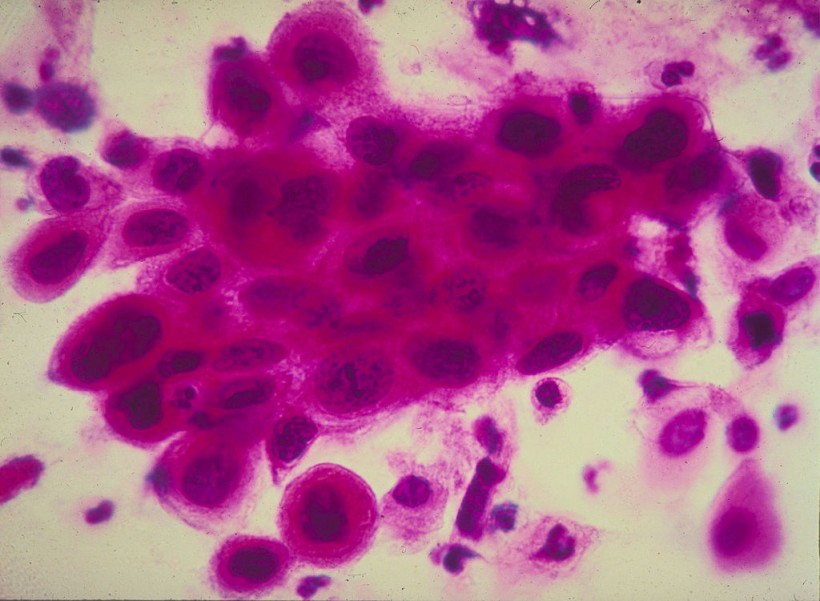In a groundbreaking discovery, researchers at City of Hope National Medical Center have identified a new player in the fight against cancer-human type 2 innate lymphoid cells (ILC2s).
These immune cells, known for their role in allergy and immune responses, have shown a remarkable ability to directly attack and kill various types of cancers, including blood cancers and solid tumors.
The findings, published in the journal Cell, open doors to a potential breakthrough in cancer treatment, offering a fresh perspective on immunotherapy (via Medical Xpress).

390487 02: (FILE PHOTO) Close up of cancer cells in the cervix. Cancer of the uterine cervix, the portion of the uterus that is attached to the top of the vagina.
A Closer Look
Dr. Jianhua Yu, a professor in the Department of Hematology & Hematopoietic Cell Transplantation at City of Hope and the senior author of the study, expressed the significance of this discovery, stating, "The City of Hope team has identified human ILC2 cells as a new member of the cell family capable of directly killing all types of cancers."
This revelation challenges previous assumptions, as mouse-based studies did not consistently demonstrate the cancer-killing abilities of ILC2s.
The unique aspect of human ILC2s lies in their distinct functions compared to their mouse counterparts. This unexpected divergence prompted the researchers to delve into the potential of these immune cells in treating cancer.
Unlike T cell-based therapies that rely on the patient's specific cells, ILC2s may offer a more versatile approach. They can be sourced from healthy donors, manufactured, preserved, and administered as an "off-the-shelf" product, potentially revolutionizing cancer immunotherapy.
Read Also: Moderna, Merck's Groundbreaking Melanoma Treatment Shows Promise in Combination Therapy Study
Testing Their Findings
To test the efficacy of human ILC2s, the researchers developed a novel platform to expand these cells outside the body. In just four weeks, ILC2s harvested from blood samples could be increased 2,000-fold.
When injected into mouse models engrafted with human acute myeloid leukemia (AML) or solid tumors, including pancreatic cancer, lung cancer, and glioblastoma, the results were promising. The expanded ILC2s demonstrated a previously unknown cancer-killing mechanism, directly causing tumor cell death.
Dr. Michael Caligiuri, a co-senior author of the study, emphasized the unexpected nature of the findings, stating, "It is remarkable that something has evolved so distinctly in going from mouse to human."
The researchers noted that ILC2s, unlike other therapies, do not necessarily need to originate from the patient's cells, allowing for the possibility of harvesting and freezing ILC2s from healthy donors for future treatment options.
While acknowledging the early stage of understanding ILC2s' cancer-killing functions, the researchers are optimistic about the potential applications beyond cancer treatments.
ILC2s, now recognized as a new member of the cytotoxic immune effector cell family, could collaborate with other killer cells, such as natural killer cells (NK cells) and CD8+ T cells, to enhance the body's ability to fight various diseases.
Looking ahead, the research team aims to expand the applications of these findings, exploring their effectiveness against viruses, including COVID-19.
The study has already overcome one hurdle in bringing ILC2s to clinical trials-the ability to produce enough product for testing. The researchers are confident in their progress, leveraging the expertise and facilities at City of Hope to accelerate discoveries into clinical applications.
Stay posted here at Tech Times.
Related Article: Scientists Leverage Nanomachines to Explore a New Cancer Treatment






